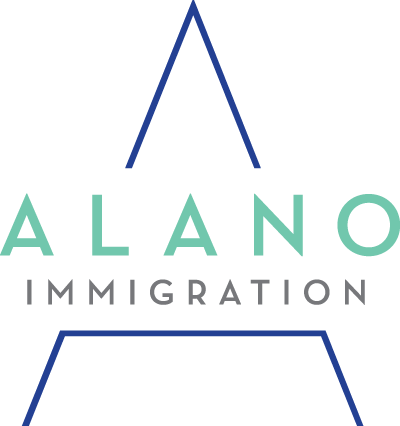The new provisional waiver, also called the “stateside waiver,” allows certain immediate relatives of U.S. citizens to apply for a waiver of inadmissibility within the U.S. rather than have to wait out the pendency of the waiver outside of the country. The applicant will still have to leave the U.S. to apply for an immigrant visa, but will not have to be outside of the country for so long, and will know before leaving that the waiver has been approved.
The most common example of people who can take advantage of provisional waivers are husbands and wives of U.S. citizens. Many times, a husband or wife will enter the U.S. “without inspection,” usually from Mexico. This means that they crossed through by land without going through any checkpoint. Because they entered without inspection, they cannot apply for residence within the U.S. through the process called “adjustment of status.” They have to leave the U.S. and consular process through their home country. Oftentimes, they have been here in the U.S. for many years without any lawful immigration status. If they have to leave the U.S. to apply for an immigrant visa, it will trigger a three or 10-year bar. It is also called the unlawful presence bar. By leaving, the person cannot come back on the immigrant visa for up to 10 years, depending on how long they have been in the U.S. without status. They become “inadmissible” as immigrants for this reason.
The law allows for an applicant to request to “waive” the inadmissibility with a waiver application. The waiver application must show that the U.S. citizen relative will suffer extreme hardship if the husband or wife cannot immigrate. The hardship cannot be the “normal” hardship associated with deportation.
If the waiver is approved, the U.S. citizen spouse can then leave the U.S. to appear for his or her immigrant visa interview, and then return to the U.S. as an immigrant. This is much better than the previous system, which made the person apply for the waiver at the time of the visa interview and have to wait abroad for six months and longer. If the waiver was denied, then the person would be stuck out of the country for 10 years. The provisional waiver process was set in motion after several spouses of U.S. citizens died while living in or near dangerous Ciudad Juarez while waiting for their waivers to be approved.
The provisional waiver will only waive the unlawful presence bar. It will not waive fraud or criminal issues.
Here are some scenarios where you should not apply for a provisional waiver or where a waiver will not help you:
- The extreme hardship cannot be based on a U.S. citizen child. You will only be able to based extreme hardship on a U.S. citizen spouse or parent;
- You have criminal convictions – talk to an immigration attorney about how your criminal convictions may affect you;
- You have traveled back and forth between the U.S. and your country (particularly Mexico), entering without inspection each time. This is, unfortunately, very common and will bar you from most immigration relief;
- You have committed fraud or misrepresentation – talk this through with an immigration attorney; and,
- You have already been removed (deported).
If you think that you may be able to benefit from a provisional waiver, you should review the USCIS provisional waiver page and speak with an immigration attorney. Because of the complexity of the law and potential consequences of filing, I do not recommend that you apply for these on your own. Seek help from an immigration attorney in good standing with his or her state bar.
